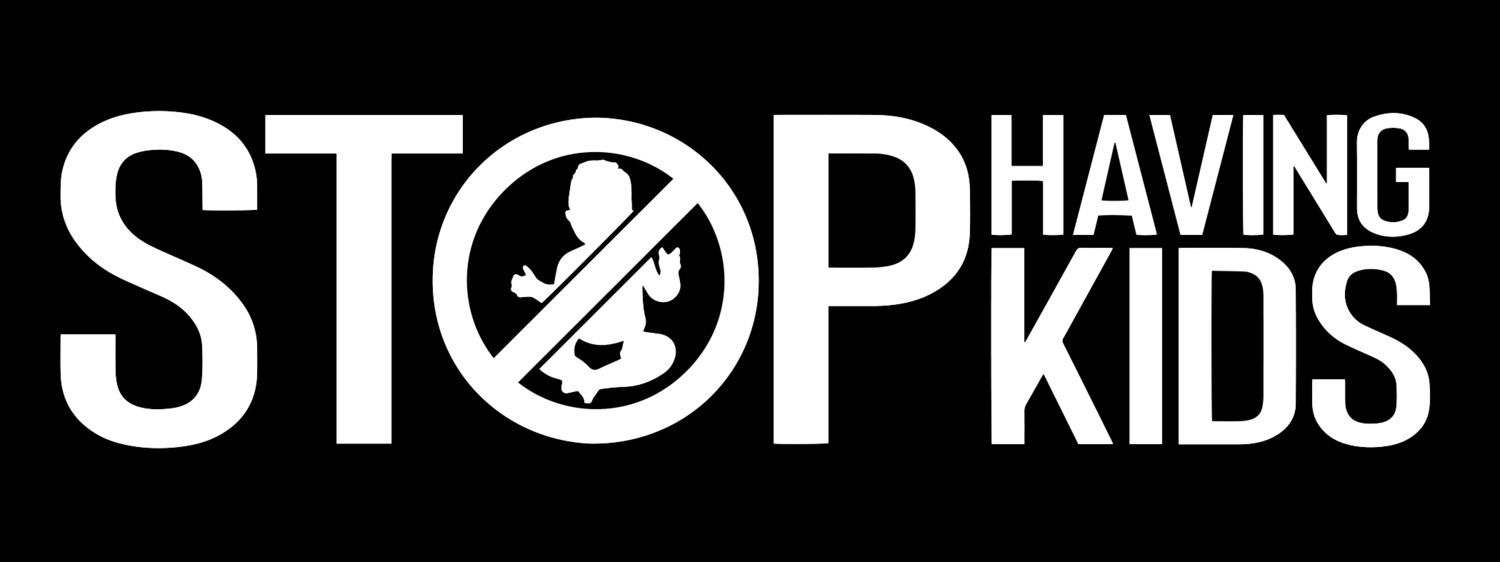My Kid Could Save The World
Burdened With Changing The World
Read More
Do we expect the next generation to solve problems created and perpetuated by the current generation? One reason often cited for procreating is the idea that “my kid will be the one who saves the world.”
Why should anyone be brought into a chaotic and crumbling world to help fix it when they had nothing to do with creating problems in the first place? Is it moral to impose life with the expectation that the new person will be a tool for progress?
There is no rational justification to put the burden of changing the world on a new person who had no hand to play in its increasingly degraded status. Birthing someone to inherit a duty imposed by someone too lazy or inept to carry it out themselves is not only egocentric, but more importantly, disregards a person’s entitlement to consent and autonomy. It forcibly strips the child of their personhood status, and reduces them to a sacrificial tool whose purpose is predetermined, expected, and imposed. No existing substantive argument legitimizes that act of placing expectations on youth to fix the intentional and unintentional transgressions of their predecessors. The duty is on the bearers to create equitable societal and environmental circumstances suitable for thriving children, not for children to fight their way out of a predatory environment their parents intentionally chose to subject them to. Expecting future people to fix current problems is not loving. It is indicative of a greater, ubiquitous human malady that fosters disrespect of consent, and indifference towards the implications our actions have on other sentient beings, the Earth, and other animals, so long as it produces personal gain or fulfillment. It is selfish, full stop.
Your Child Will Be The Hero?
Read More
Consider: What will life look like for these manufactured heroes-to-be of the earth and humanity? Will they be expected to abstain from all common, routine, human activities that perpetuate harm against the planet and its inhabitants? Even while most existing humans indignantly reject any suggested minor lifestyle alterations? While existing humans scornfully renounce calls for changes in conduct, are we to expect the following generation to only travel by foot, avoid depleting resources, and spend a bulk of their time educating themselves about global injustice at the library instead of mindlessly scrolling on addictive and mind-decaying social media platforms? How will they develop the strategies and tactics to stop what billions of other humans are participating in, when nobody has before, and interference from surveillance, information distortion, distractions, and law enforcement is increasing exponentially? How will they stop the irreversible damage already inflicted prior to their existence, which will progressively worsen before they are even literate- when their parents cannot even provide them with a template because they put little to no effort into resolving these problems themselves?
Instead of treating or perceiving future humans as foot soldiers for world progress, we must respect the reality that future humans are likely to experience a sense of paralysis, apathy, or indifference from the gravity of world issues, and will add to the same problems in the same ways as their predecessors. Younger generations are already increasingly experiencing eco-grief, ecoanxiety, hopelessness, and despair at unprecedented levels. In 2021, more than 1 in 4 American teenage girl reported that they have seriously considered suicide.
All Individuals Have Their Limits
Read More
There is a growing body of evidence suggesting deaths of despair are increasing rapidly. The youth are aware that most injustices and inequities are too large and complex to resolve alone, and that most people aren’t taking these issues seriously. They know that even if they attempted to resolve issues, few would take them seriously, and many would ridicule or invalidate them- especially their predecessors, best illustrated under the common phrase: “Well, I won’t be alive when it gets that bad, so who cares?”
Even if a child deviates from common habits to live a more conscious life, their individual actions will not negate or compensate for the harm that they produce through existence. Moreover, these actions will not translate into species-wide reform and evolution.
Few, if any, individuals changed society in a way that guaranteed improvements in quality of life collectively and equitably. Not only is it improbable that any person’s kid(s) will adequately alter the world for the better, but it is more likely that they will lack interest in doing so, or worse yet, do the opposite. No person’s genetic pool is so exceptional that it guarantees a virtuous prodigy capable of accomplishing what eight billion people are incapable of resolving en masse.
Our options as humans are limited to harm minimization, as sustaining our existence inherently demands a substantial toll on the natural world. This inescapable fact eradicates any notion that the creation of a new human will subsequently eliminate earthly devastation. If one hopes to raise a child who will try to better the world in some capacity they can do so by supporting children who already exist, and who aren’t biologically linked to them.




